From the Archive: A Sampling of the Hadassah Collection
By Sadie Spett
Hadassah’s mission is, and always has been to heal the United States and Israel as volunteers and philanthropists. But it is so much more. Hadassah, more formally known as The Womans Zionist Organization of America, is a group of Jewish women, not only coming together to speak about advancing healthcare, strengthening the connection between Zionism and Israel, and Jewish education youth initiatives, but finding relationships in the organizations that they might not find in a casual setting. Additionally you can catch a glimpse of what kinds of events Hadassah has hosted and what advertisement techniques they used to gain more members. Being an intern at Dallas Jewish Historical Society, through the Rabbi Gerald Klein Internship program with Jewish Family Service, I have seen how the Dallas Jewish community has evolved through the years, appealing to each generation. For example, in the earlier years, with less technology, the flyers and invitations were less flashy and were straight to the point. Leading up to the later years starting in the 1990s, more color and pictures appear to grab the attention of potential and current members. But as far as programs go, there have always been conferences, galas, and dinners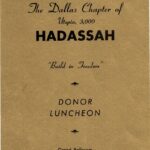 .
.
My first time looking at the files of part of the Hadassah Collection at DJHS, I was surprised to see as many invitations to events and gatherings as I did. These gatherings were a way for the Hadassah members to discuss issues in the Jewish world. At a particular event in 1939 called the Annual Conference of Texas Zionist Organization, Annual Conference of Texas-Louisiana Region of Hadassah, and Annual Conference of Junior Hadassah, there is a whole planned schedule for each part of the day with date and times. Each day there are different sessions that you can choose to attend. One session called the Zionist session takes you through your day in great depth. A typical day in attending the Zionist session would be: 8:30 A.M.-regristration, 9:00 A.M- executive meeting, 10:00 A.M business session with a speaker named Mr. L. F. Shanblum, 1:00 P.M-JNF Luncheon, 3:00 P.M Business session with special committee reports, 6:00 P.M.-Buffet supper, with a panel talk and visiting rabbis. This event was a several day affair and Jewish Hadassah members would travel from all over the world to attend. And the rest of the sessions were quite similar. I have learned that events like this were very prominent in the lives of Hadassah members. These loyal members put everything into planning these occasions to build the program and make it the best they could, and in doing so they put together such formal invitations to address Hadassah members.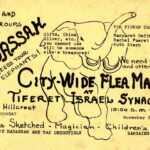
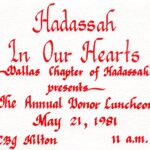
Thank you notes are also prominent in the Hadassah collection.
These notes are from people expressing their gratitude to hosts such as Phyllis Shear, chapter president at the time, in 1983, for hosting a conference. The notes are additionally thanking the host for their hospitality for hosting gatherings, from people congratulating the host on their good work on leading and hosting functions, and from people that are thanking attendees for taking part in what event is going on, whether it’s a conference, a seminar,or a charity gala. In reading these notes, you can feel the welcoming and appreciative nature from the note-taker and you can tell that these participants were all very dear to each other.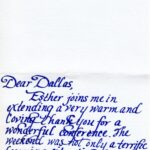
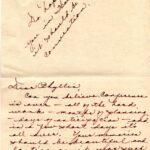
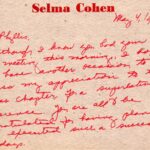
To sum it up, Hadassah was, and is, such a noteworthy part of Dallas history. Hosting gatherings and promoting Jewish and secular education is such an essential fact and this organization did, and still does such a great job executing that in a fun and interactive way. The members grow so close to each other and we can see that just by looking at photos and thank you notes. Not only is educating yourself on important topics a crucial undertaking but so is interacting with people that have something in common with you. Having these people is important so you can understand each other’s references and you can have discussions about the familiar topic. And this organization has both.
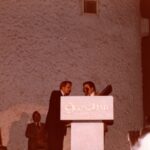
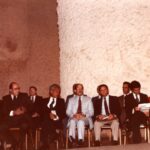
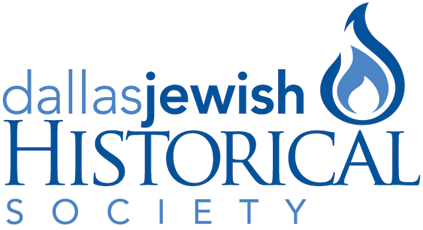
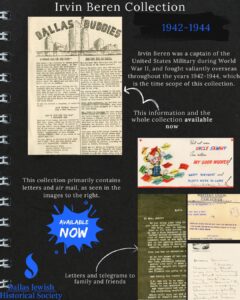
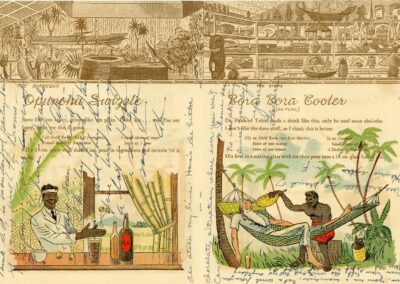
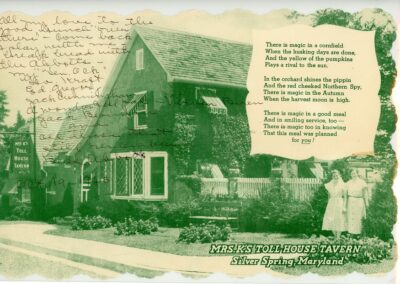
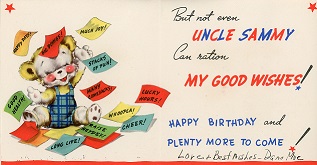
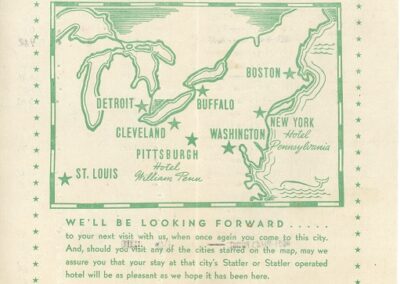

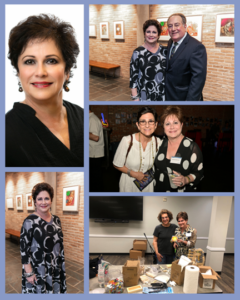
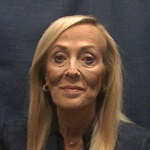
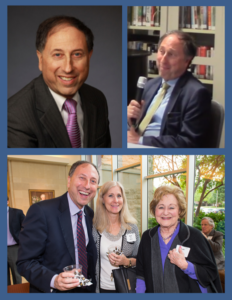 Michael recalls, “In those days, experienced board members included Pauline Graivier, Elya Naxon, and Harriet Gross with Past Presidents Ginger Jacobs and Ruth Andres often in attendance. Stuart Rosenfield was wearing short pants at that time [he says in jest of his life-long friend who also a fledgling board member around that time and later became President of DJHS].
Michael recalls, “In those days, experienced board members included Pauline Graivier, Elya Naxon, and Harriet Gross with Past Presidents Ginger Jacobs and Ruth Andres often in attendance. Stuart Rosenfield was wearing short pants at that time [he says in jest of his life-long friend who also a fledgling board member around that time and later became President of DJHS].
Recent Comments